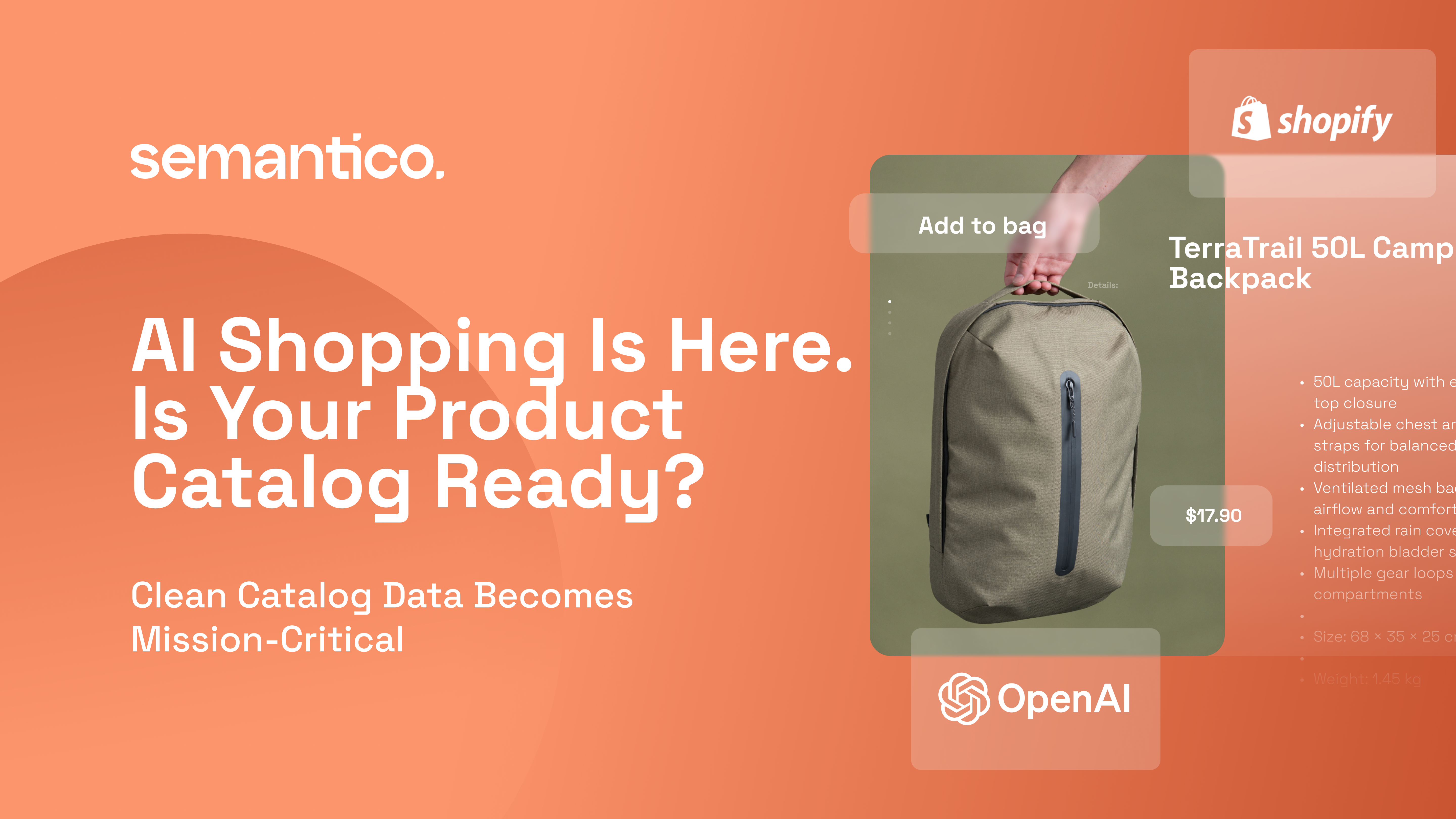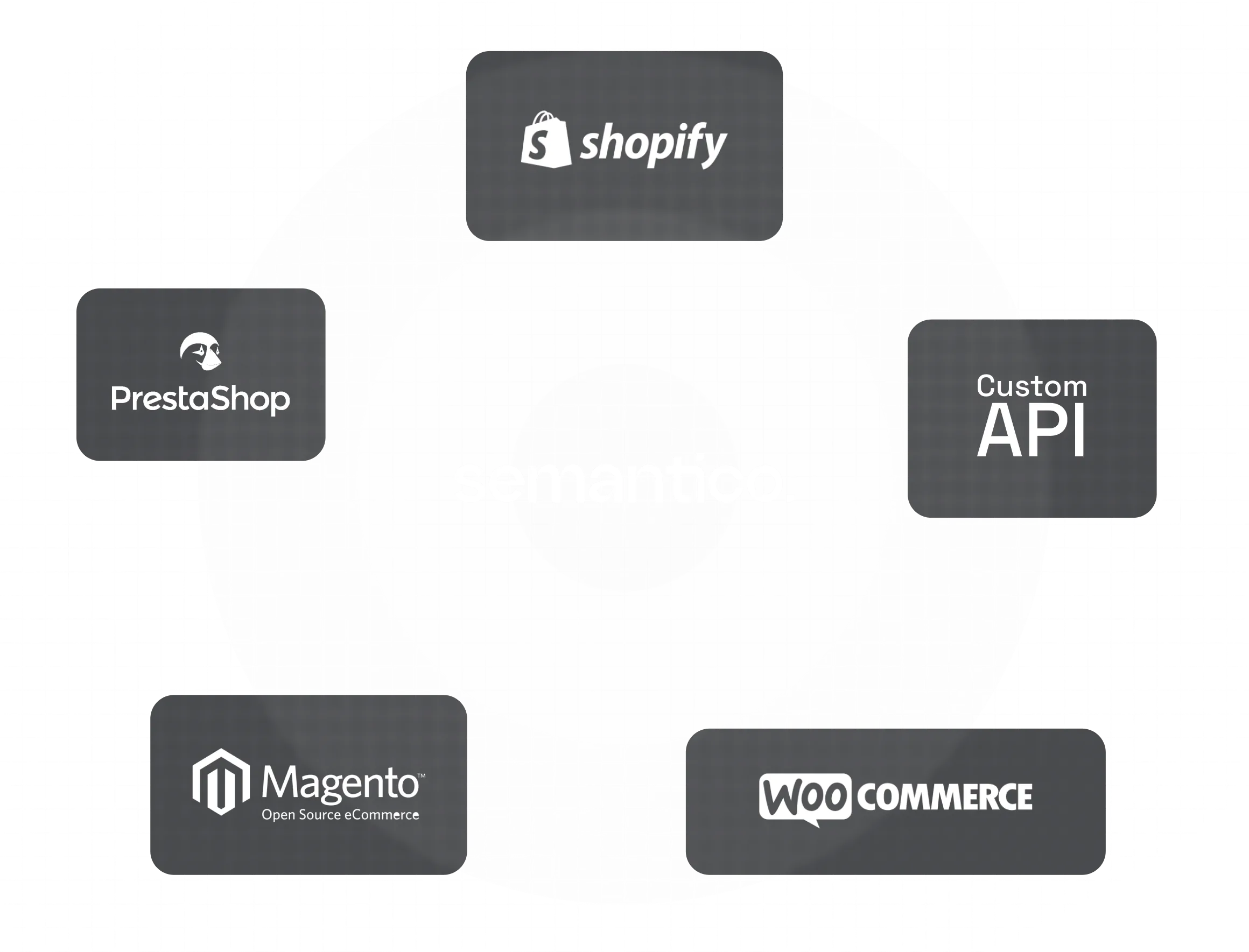AI-driven shopping has officially arrived. With recent developments like Shopify’s partnership with OpenAI to enable shopping via ChatGPT, consumers can now discover and buy products through AI conversations (Source: shopify.comshopify). “Shopping is changing fast. People are discovering products in AI conversations, not just through search or ads,” notes Shopify’s VP of Product. This shift opens exciting new channels for e-commerce – but it also raises the stakes on your product data. If your product catalog is disorganized or incomplete, AI won’t surface your products. In an era where AI assistants might recommend items without a traditional search query, messy catalog data could make your brand invisible.
AI Shopping: A New Era for Product Discovery
The rise of AI-powered search and shopping tools means that product discovery is no longer limited to search engines or ads. Customers can ask an AI assistant for gift ideas or product recommendations and see direct purchase options in-chat. For example, ChatGPT’s shopping feature now shows rich product results with images, prices, reviews, and descriptions – all pulled from structured data sources. Shopify’s own announcement highlights that “hundreds of millions of products [are] instantly discoverable in a format that AI understands” through real-time data feeds.
Crucially, these AI systems rely on consistent, structured information to present products accurately. OpenAI’s documentation suggests ChatGPT uses structured metadata (like Schema.org markup) for product info. In fact, early analyses of the Shopify-ChatGPT integration urge merchants to ensure their product pages include proper schema data so OpenAI’s crawlers can index them. In short, AI-driven shopping tools are only as good as the data they can read. This puts pressure on brands to have clean, complete product data ready for machine consumption.
Why Messy Catalogs = Invisible Products
Think of your product catalog as the foundation of your visibility in this new AI-driven search landscape. AI algorithms can’t magically intuit details that aren’t there or untangle a jumble of inconsistent data. In the “agentic era” of commerce, “AI agents need highly structured, machine-readable data to find, compare and recommend products accurately. After all, if product data is inconsistent or hidden, intelligent agents can’t surface your brand’s products to shoppers.”. In other words, a disorganized or incomplete catalog means AI assistants may simply skip over your products in favor of competitors with clearer data.
Here’s why clean, structured, SEO-ready data matters more than ever:
- Structured data fuels AI results: ChatGPT and similar AI search tools pull product info from schema markup and feeds. Without the right structured data (e.g. price, availability, descriptions), your products might not appear in rich results.
- Consistency builds relevance: AI ranking mechanisms aggregate data from multiple sources. If your naming conventions, attributes, or categories are inconsistent, the AI may fail to recognize products as relevant matches to a query. Consistent titles, tags, and attributes help AI confidently recommend your item.
- Complete info boosts trust: Detailed, up-to-date product content (images, specs, reviews) leads to richer AI-generated answers. Shoppers are more likely to click when they see full product details like ratings, price and stock right in the AI results. Missing data means fewer or less appealing recommendations.
- SEO optimization still counts: Even as AI summarizes answers, the underlying search index and Knowledge Graph connections rely on SEO signals. Poorly optimized product descriptions or missing keywords can hurt your chances of being picked as the answer source. Clean data with relevant keywords and schema helps AI understand and feature your products.
In sum, “catalog chaos” – messy spreadsheets, inconsistent attributes, outdated info – directly undermines your AI commerce visibility. Brands that ignore data quality risk their products becoming invisible in the very channels that are poised to drive the next wave of e-commerce growth.
Making Your Catalog AI-Ready (Not Just Search-Ready)
Traditionally, retailers focused on SEO and site search optimization to help customers find products. Now, AI readiness is just as critical. But getting your catalog AI-ready can be daunting: it means auditing every product entry, fixing inconsistencies, adding missing attributes, implementing schema markup, and continuously updating content. This is where Semantico’s unique approach comes in.
Semantico acts as the data foundation for AI commerce visibility, turning catalog chaos into structured, optimized data. Using AI, Semantico automatically builds and cleans your product listings in a way that both humans and algorithms love. Here’s how Semantico helps prepare your catalog for the new search era:
- Automated Data Enrichment: Starting from just a product identifier, the platform pulls in or generates complete product content – titles, descriptions, specs, high-quality images – within secondssemantico.ai. It ensures each listing is 80%+ complete off the bat, so you’re not starting from scratch.
- Consistency & Structure at Scale: Semantico’s AI normalizes attributes and categorization across your entire catalogsemantico.ai. All your products get unified attribute names, consistent units, and correct categories without manual cleanup. This yields clean, structured data ready for search engines and AI to parse.
- SEO Optimization Built-In: Every generated listing comes with SEO best practices baked in – from optimized titles and keyword-rich descriptions to proper schema markup for products. Instead of retrofitting SEO later, your data is search-engine and AI-friendly from day one.
- Real-Time Updates and Integration: Because Semantico can integrate with platforms like Shopify, Magento, etc., it can push these enriched listings live quickly (or update existing ones) with ease. Your catalog stays fresh and synchronized, ensuring AI assistants always retrieve the latest, accurate info about your products.
By automating these steps, Semantico saves your team countless hours of manual data entry and fixes. More importantly, it creates a rock-solid data layer that makes your products visible and compelling on any channel – whether it’s Google’s search results or ChatGPT’s shopping recommendations. In effect, you’re future-proofing your SEO and making your catalog “AI-ready” so that when shoppers ask an AI for the kind of products you sell, your brand shows up.
From Catalog Chaos to Growth
As AI-driven shopping gains momentum, brands can’t afford to have product data on the sidelines. Clean, structured catalog data is becoming as vital as good store design or a fast website – it’s directly tied to whether you get seen and chosen in the next-generation shopping experience. The good news is that investing in data quality pays off across the board: not only do you improve AI visibility, but you also enhance traditional SEO, on-site search, and overall customer trust.
AI shopping is here — but without consistent, optimized catalog data, your products risk becoming invisible. Don’t let catalog chaos hold you back. Semantico makes catalogs AI-ready so your brand shows up in this new search era and converts that visibility into sales.
Ready to future-proof your product catalog? Semantico is the data foundation that can turn your messy catalog into a growth engine. Try Semantico for free or book a demo today to see how you can turn catalog chaos into e-commerce success.





